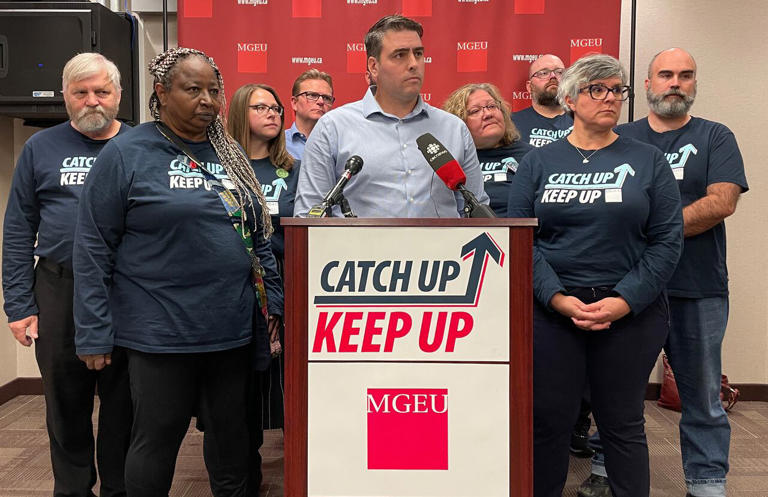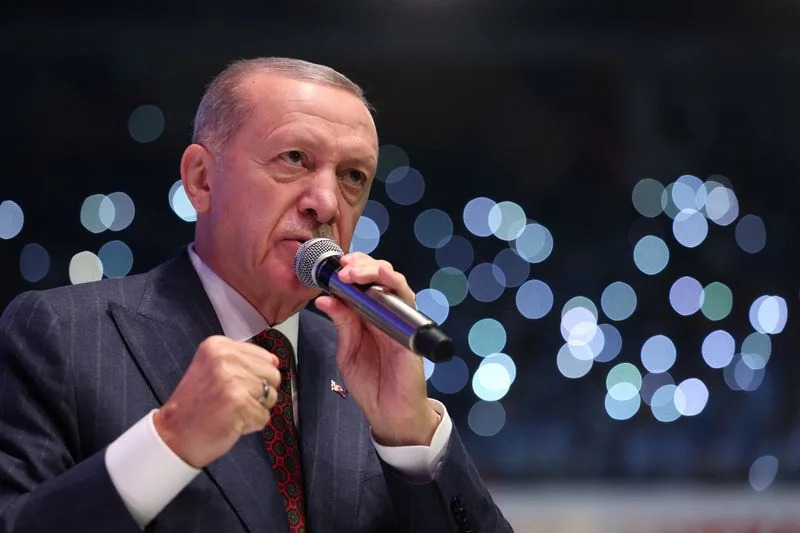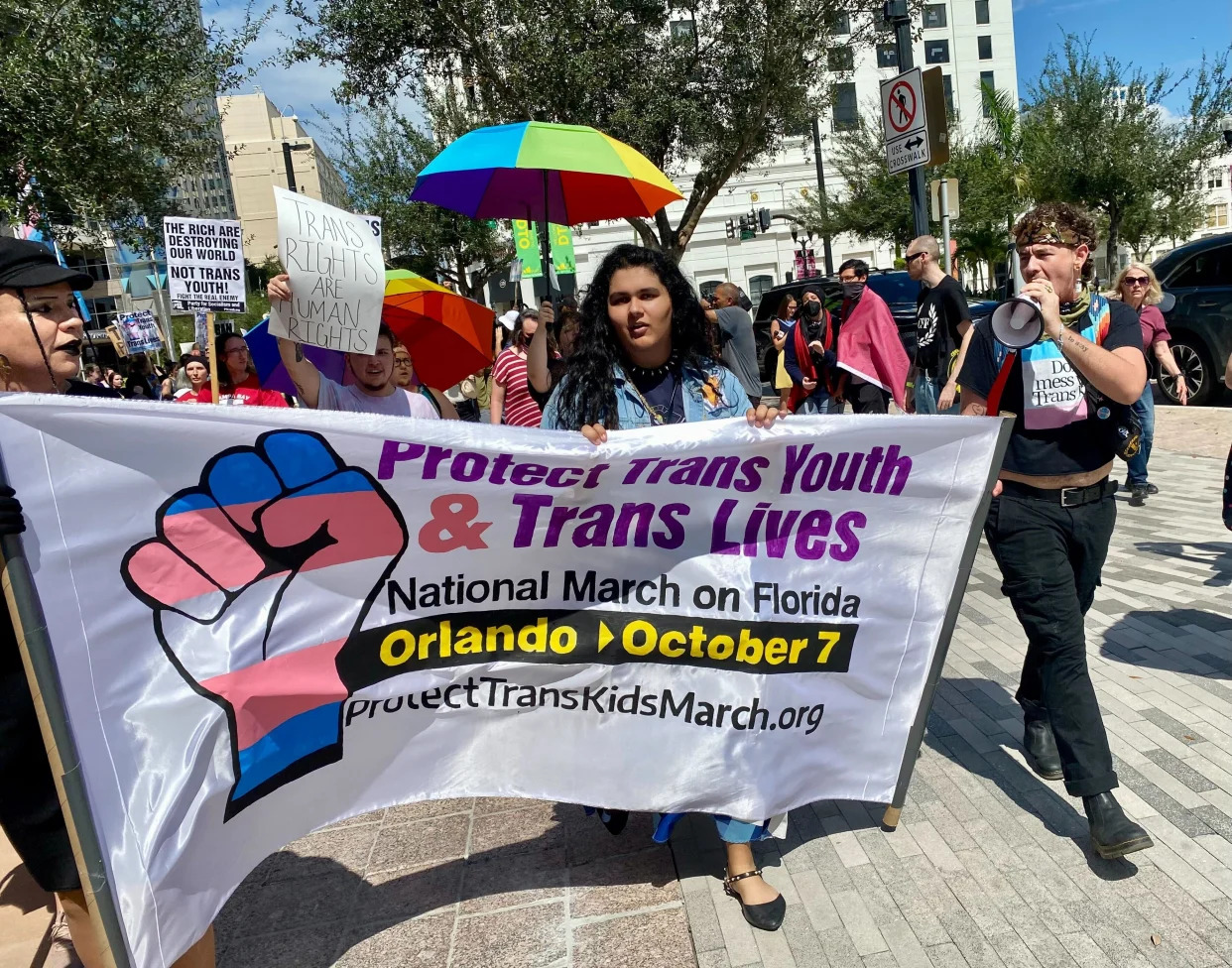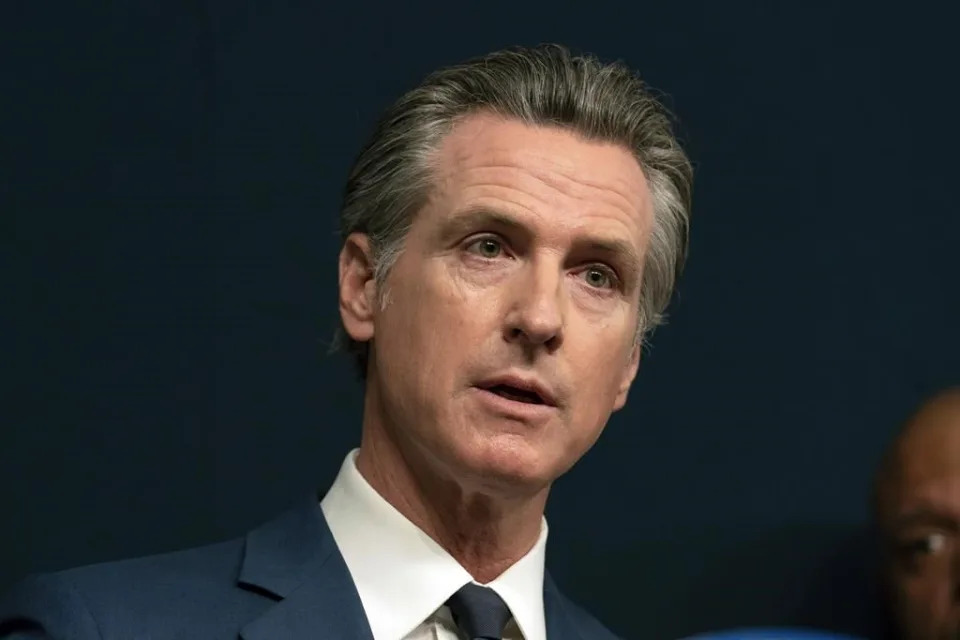LOS ANGELES (AP) — Gov. Gavin Newsom vetoed a bill Saturday that would have made California the first U.S. state to outlaw caste-based discrimination.
Caste is a division of people related to birth or descent. Those at the lowest strata of the caste system, known as Dalits, have been pushing for legal protections in California and beyond. They say it is necessary to protect them from bias in housing, education and in the tech sector — where they hold key roles.
Earlier this year, Seattle became the first U.S. city to add caste to its anti-discrimination laws. On Sept. 28, Fresno became the second U.S. city and the first in California to prohibit discrimination based on caste by adding caste and indigeneity to its municipal code.
In his message Newsom called the bill “unnecessary,” explaining that California “already prohibits discrimination based on sex , race, color , religion, ancestry, national origin, disability, gender identity, sexual orientation, and other characteristics, and state law specifies that these civil rights protections shall be liberally construed.”
“Because discrimination based on caste is already prohibited under these existing categories, this bill is unnecessary,” he said in the statement.
In March, state Sen. Aisha Wahab, the first Muslim and Afghan American elected to the California Legislature, introduced the bill. The California law would have included caste as a sub-category under “ethnicity” — a protected category under the state’s anti-discrimination laws.
Opponents, including some Hindu groups, called the proposed legislation “unconstitutional” and have said it would unfairly target Hindus and people of Indian descent. The issue has divided the Indian American community.
Earlier this week, Republican state Sens. Brian Jones and Shannon Grove called on Newsom to veto the bill, which they said will “not only target and racially profile South Asian Californians, but will put other California residents and businesses at risk and jeopardize our state’s innovate edge.”
Jones said he has received numerous calls from Californians in opposition.
“We don’t have a caste system in America or California, so why would we reference it in law, especially if caste and ancestry are already illegal,” he said in a statement.
Grove said the law could potentially open up businesses to unnecessary or frivolous lawsuits.
Proponents of the bill launched a hunger strike in early September pushing for the law’s passage. Thenmozhi Soundararajan, executive director of Equality Labs, the Oakland-based Dalit rights group that has been leading the movement to end caste discrimination nationwide, said the goal of the fast is to end caste bias in every area, including employment and housing.
“We do this to recenter in our sacred commitment to human dignity, reconciliation and freedom and remind the governor and the state of the stakes we face if this bill is not signed into law,” she said.
A 2016 Equality Labs survey of 1,500 South Asians in the U.S. showed 67% of Dalits who responded reported being treated unfairly because of their caste.
A 2020 survey of Indian Americans by the Carnegie Endowment for International Peace found caste discrimination was reported by 5% of survey respondents. While 53% of foreign-born Hindu Indian Americans said they affiliate with a caste group, only 34% of U.S.-born Hindu Indian Americans said they do the same.
___
Associated Press religion coverage receives support through the AP’s collaboration with The Conversation US, with funding from Lilly Endowment Inc. The AP is solely responsible for this content.
Deepa Bharath, The Associated Press
CASTEISM IS SLAVERY
Organisation representing Hindu Parents, Dalit group celebrate veto of California's anti-caste discrimination bill
'In California, we believe everyone deserves to be treated with dignity and respect, no matter who they are, where they come from, who they love, or where they live,' Governor Gavin Newsom said
PTI Washington Published 08.10.23
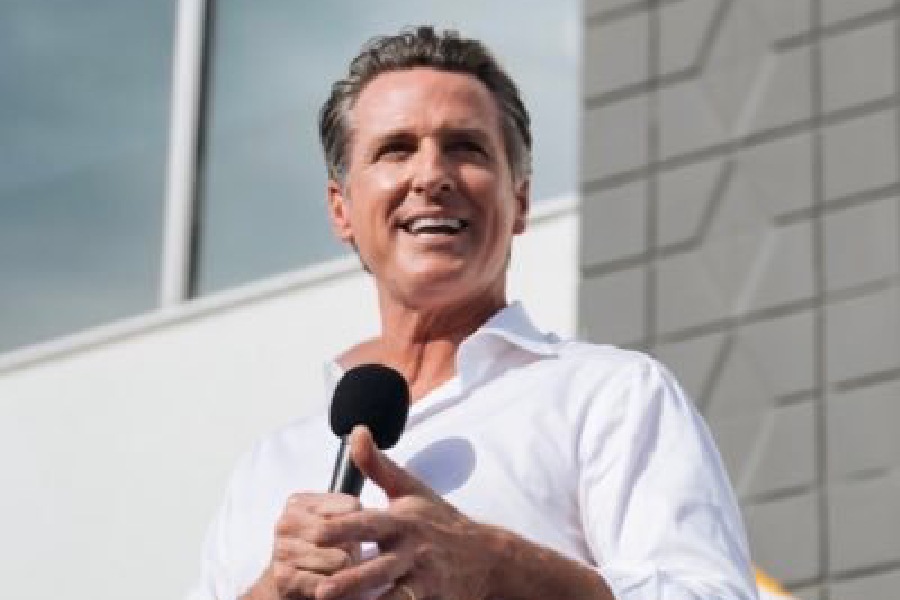
California Governor Gavin NewsomX / @GavinNewsom
An organisation representing Hindu parents in California, eminent Indian-Americans and a Dalit advocacy group on Saturday welcomed the decision of California Governor Gavin Newsom to veto the anti-caste discrimination bill, saying it was brought with the sole intention of "stereotyping the community".
The governor vetoed the bill, which was recently passed by the state assembly, and said that laws to ban caste-based discrimination already exist in the state.
“In California, we believe everyone deserves to be treated with dignity and respect, no matter who they are, where they come from, who they love, or where they live,” Newsom said in a statement issued Saturday.
"That is why California already prohibits discrimination based on sex, race, colour, religion, ancestry, national origin, disability, gender identity, sexual orientation, and other characteristics, and state law specifies that these civil rights protections shall be liberally construed. Because discrimination based on caste is already prohibited under these existing categories, this bill is unnecessary," he explained.
For this reason, Newsom asserted that he “cannot sign” the bill known as ‘SB403’, which was passed by a large majority by both the House of Representatives and Senate of the California State Assembly.
“With the stroke of his pen, Governor Newsom has averted a civil rights and constitutional disaster that would have put a target on hundreds of thousands of Californians simply because of their ethnicity or their religious identity, as well as create a slippery slope of facially discriminatory laws,” said Samir Kalra, managing director of Hindu American Foundation.
Leading Democrat Ajay Bhutoria, in a statement, expressed his gratitude to Governor Newsom for vetoing the bill and described it as a “momentous development”.
During a recent engagement at a Democratic National Committee (DNC) event in Chicago, Bhutoria from California and Rakesh Kapur from Boston urged the governor to veto the bill.
“This is a culmination of the efforts of the entire #HinduAmerican community, and the hundreds of organisations, temples, businesses, and allies that fought against #profiling. We rose above the lies, the insinuations, and the wild accusations - and we prevailed,” Coalition of Hindus of North America said.
“As California's Governor has rightly pointed out, California's law on civil rights already covers all instances of discrimination. We believe that this bill was brought with the sole intention of stereotyping Hindus, Sikhs, Jains, Buddhists, Muslims and other communities from South Asia,” said Vaishali V, president of Ambedkar-Phule Network of American Dalits and Bahujans.
Congratulating the governor for seeing through the flaws in the bill and how it would adversely impact people from South Asia, including the marginalised communities, Vaishali said the network sees the bill as anti-Dalit and a threat to their cultural existence.
“While we welcome the veto, we know that nothing can bring back the life of our leader Milind Makwana who was the voice marginalised and at the forefront of the struggle against SB-403 Nothing can heal the loss and the trauma that this bill has caused to the families of the marginalised communities,” Vaishali said.
Expressing profound relief and gratitude following Governor Newsome's decision to veto bill SB403, Hindu Parents said this significant decision stands as a beacon against prejudice, discrimination, and misinformation about Hinduism and its followers in California.
“With this development, our children can look forward to a future where they are not subject to undue stereotyping and profiling based on perceptions. This ensures they can practise their faith peacefully, with pride, and without the looming shadows of colonial-era stereotypes and prejudice,” Hindu Parents said.
“While we celebrate this victory, we recognize there's more work ahead. The portrayal of Hinduism and Hindu-Americans, especially in educational materials, remains a concern. It is our hope that the state of California will address these systemic biases and stereotypes in our textbooks. True reconciliation can be achieved when education reflects the rich diversity and historical contributions of Hinduism,” said the organisation representing Hindu parents.
“Standing against all forms of hatred, bullying, and discrimination is our collective responsibility,” it said.
Eminent Indian American Yogi Chug said Governor Newsom’s veto of SB403 demonstrates the outcome of a protracted and long effort by the Indian-American community to advocate for the limitations of the original bill as authored.
“One must applaud the relentless effort of so many community members who diligently made the case for ensuring that no one is singled out or profiled as it iterated through various versions in the California legislature,” he said.
“The key is to ensure that the Indian-American community continues to remain engaged and recognise that they have the potential to be a responsible and meaningful voice in the American political process. Equally important is to focus on this ongoing political journey with the utmost humility and purpose,” Chug said.
Equality Lab, which had relentlessly worked for the bill and its passage, said though Governor Newsom has rejected the legislation for now, the caste equity movement still views this as a win. SB403 is the first anti-caste discrimination bill to have made it all the way through the California legislature, it said.
“We are very proud of the power and resilience that caste-oppressed people across the state have shown in their advocacy for SB403. While it is heartbreaking to receive the Governor’s veto, it is not a reflection of the incredible democratic power that our communities showed. We did the impossible,” said Thenmozhi Soundararajan, Executive Director of Equality Labs.
Kiran Kaur Gill, Executive Director of SALDEF, said they are deeply disappointed by Governor Newsom's veto of SB 403, which would have banned caste discrimination in California.
“This veto is a missed opportunity to protect millions of Californians from a form of discrimination that is deeply rooted in our society. But we won’t stop fighting for a more just and equal society and will continue fighting for California to be the first state to ban discrimination based on caste,” Gill said.
Rasheed Ahmed, Executive Director of Indian American Muslim Council, said the Indian-American Muslims are shocked, disheartened and deeply disappointed to see that Governor Newsom backed down from the chance to uphold the civil rights of all Californians and make history for caste-oppressed people throughout the state by vetoing SB-403.
The Sikh Coalition is deeply disappointed to learn that Governor Newsom has chosen to veto SB403, said Harman Singh, Policy and Education Director, Sikh Coalition.
“Millions of American Hindus, and people from the Indian subcontinent can take a sigh of relief, that they won’t be targeted for hate and prejudice under the garb of “caste”,” said Hindu Action in a statement.
“Kudos to the California governor for vetoing the racist bill on caste. It turned an existing law against discrimination and used it to target Hindus specifically. What hypocrisy by those claiming to fight prejudice? Our pushback has finally produced results,” said author Rajiv Malhotra. 